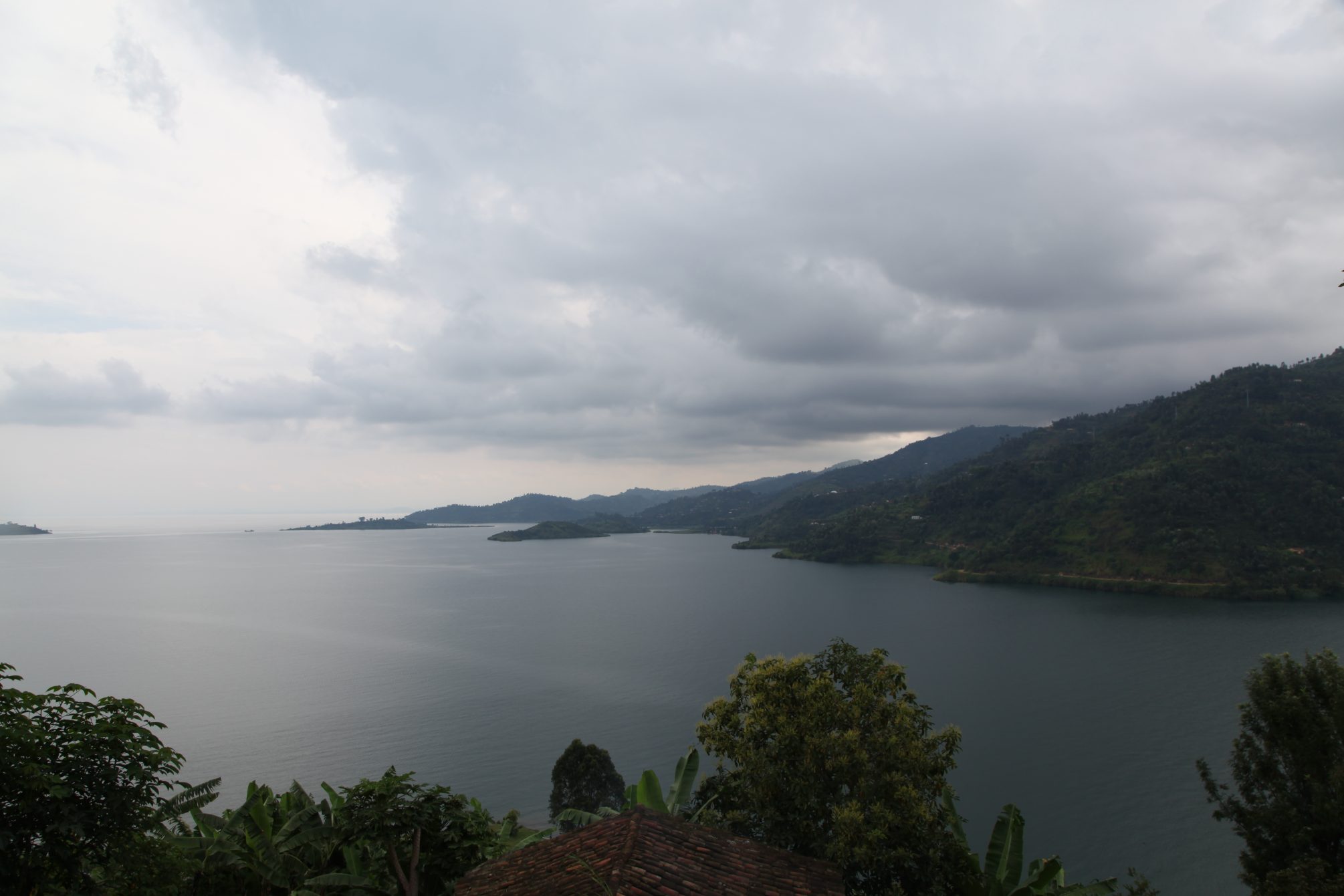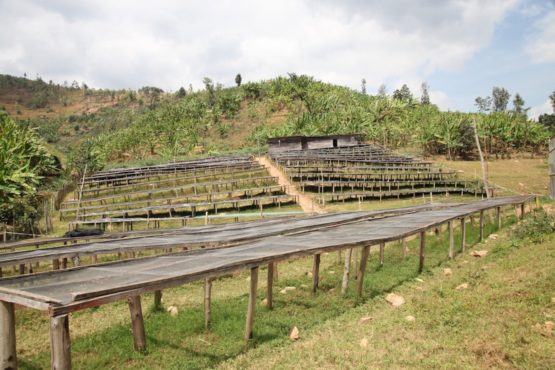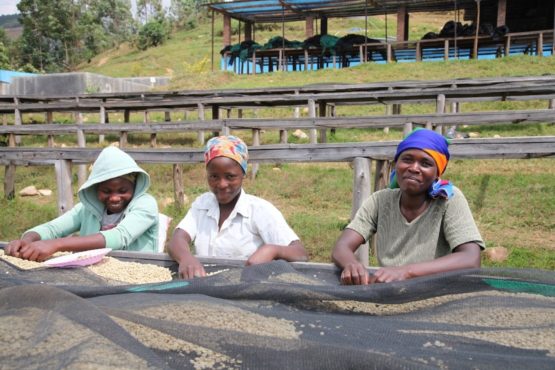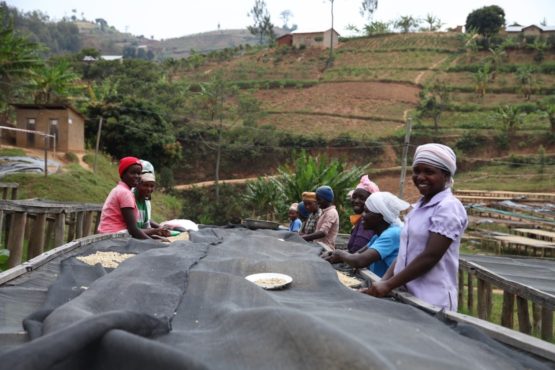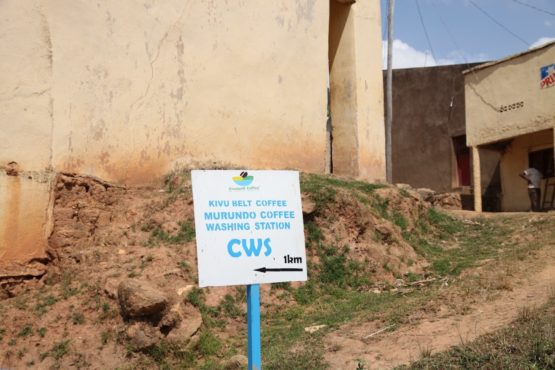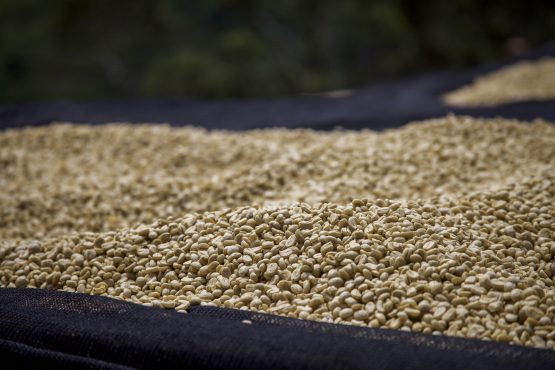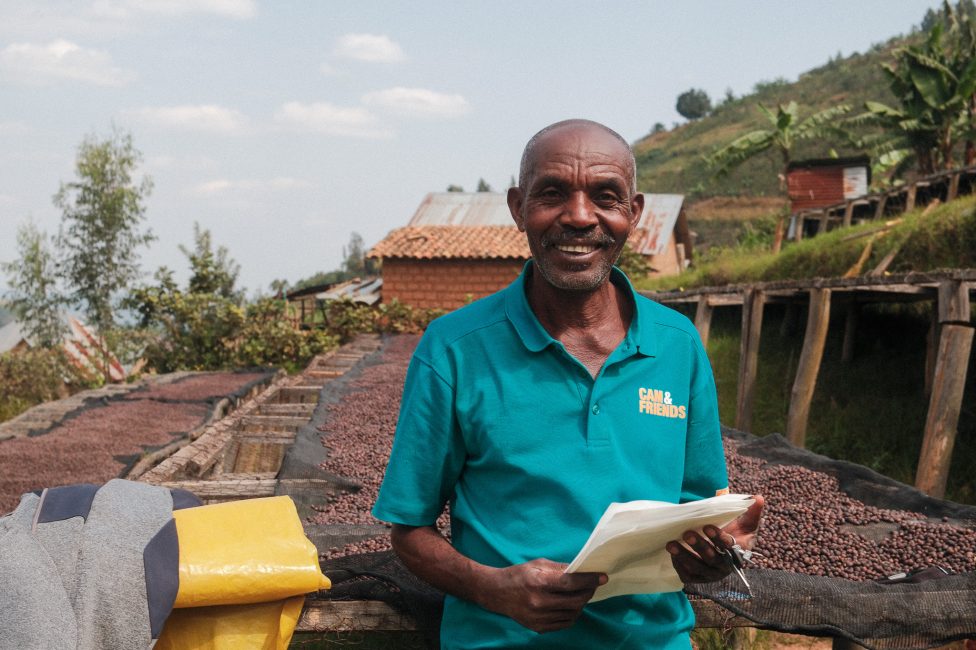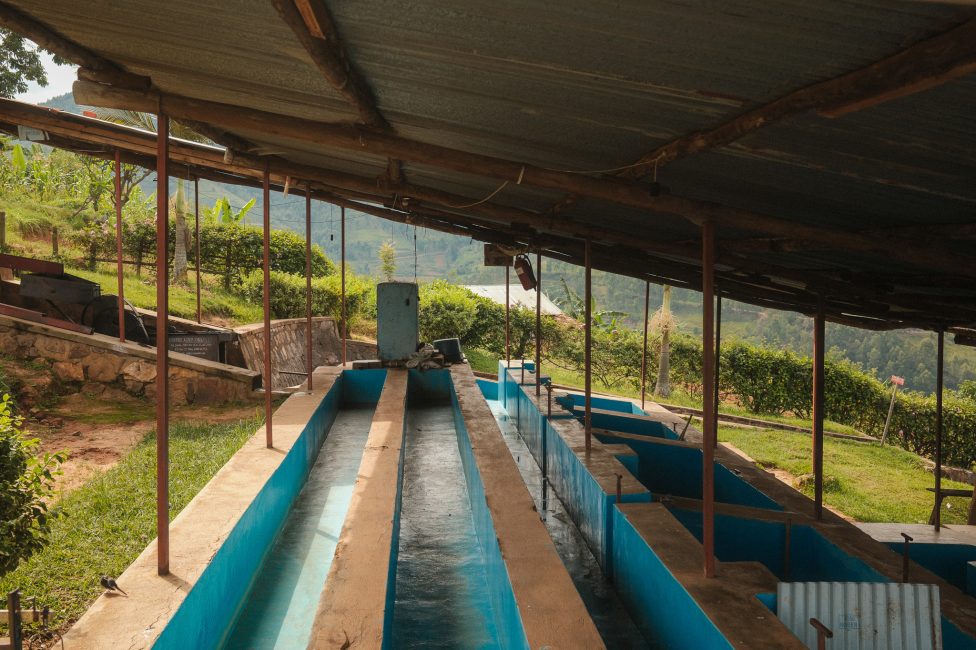Kivu Belt
Juicy and sweet, with a winey acidity and notes of peach, orange blossom, hibiscus and pineapple.
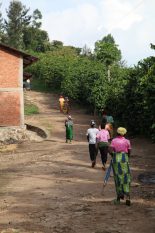 We are very excited to share this coffee with you from the breathtaking and promising Nyamasheke region in Lake Kivu, which is located in the Western Province of Rwanda. The Kivu area is hotter than the Northern and Southern Provinces, and has the perfect conditions for coffee cultivation, with some of the highest elevations in the country, nutrient-rich volcanic soil and unique micro-climate created by the humid equatorial mist that forms from Lake Kivu. It is known for producing unique coffees that are complex and delicate.
We are very excited to share this coffee with you from the breathtaking and promising Nyamasheke region in Lake Kivu, which is located in the Western Province of Rwanda. The Kivu area is hotter than the Northern and Southern Provinces, and has the perfect conditions for coffee cultivation, with some of the highest elevations in the country, nutrient-rich volcanic soil and unique micro-climate created by the humid equatorial mist that forms from Lake Kivu. It is known for producing unique coffees that are complex and delicate.
This coffee was processed at a washing station called Murundo that is privately owned by Furaha Umwizeye. Umwizeye, a Rwandan national, completed a Master’s degree in economics from the University of Fribourg in Switzerland, and was motivated to return to Rwanda after the genocide and contribute in a positive way to the society and economy.
“From the beginning, our goal was to produce a coffee of high quality for the specialty market.” Umwizeye explains. “To ensure the best quality, one has to have control of the production process. Traditionally in Rwanda, coffee washing stations and coffee farms are not vertically integrated. The ownership is separated. Coffee washing stations rely on multiple small coffee farmers for their supply of cherries [who typically only own 100–300 coffee trees]. We identified that to ensure the same high quality year after year, one has to be able to control how the coffee trees are being produced and harvested.”
Today, Umwizeye has planted over 80,000 coffee trees across three farms (Jarama, Kamajumba -which is actually located on an island on Lake Kivu- and Nyaruzina) next to the picturesque Lake Kivu, and has branded her coffees “Kivu Belt”. The three Kivu Belt project farms have 18 permanent workers and 130 seasonal workers. Umwizeye is constantly rewarded by her coffee farm project and seeing the direct impact that her business has on the region and its people. The coffee farms are very organised and well laid out, using the best sustainable agricultural practices to maximise yield and quality.
The Murundo Washing station is located at 1,786m above sea level and collects cherries from Umwizey’s farms and 300 local producers, who have farms located at 1,700m -2,100m above sea level. This coffee from this lot comes from the small producers who deliver to the Murundo Coffee Washing Station. They have small plots of land with an average of only 300 coffee trees each (less than a quarter of a hectare), and also use their land to cultivate crops like maize and beans to feed themselves and their families. Most of their income from the sale of coffee is used to send their children to school, pay for medical care, and for investment in livestock such as purchasing a cow for milk, which is then used at home and for sale locally.
Umwizeye resides in New York with her Swiss husband, returning to Rwanda frequently during the harvest. Throughout the year she has an awesome team of people that support her, including Gaspar Nsengimana who is the Chief Agronomist and oversees the entire Kivu Belt project and Claudeen Kantengwa who is the managing director of the company. Vicky Sempotore, who has worked in coffee since 2005, is the manager of the Murundo washing station and oversees quality control.
We first visited Umwizeye’s farms in 2015, with our longtime friend and producing partner, Sam Muhirwa of Buf Coffee. We have been working with Muhirwa and his mother, Epiphanie, since 2009. Up until 2014, Buf Coffee’s activities have been concentrated in the Southern Province of Rwanda, where Muhirwa’s family business is based. Over the last couple of years, Muhirwa has been fostering new relationships with producers, providing them with advice and helping them to market their coffees.
We are particularly excited about Buf Coffee’s work in the Lake Kivu area, in Rwanda’s West, as the coffees here historically have been quite difficult to access, and yet their potential for exceptional quality is among the highest in Rwanda.
HOW THIS COFFEE WAS PROCESSED
- All of the coffee is carefully hand-picked and delivered to the Murundo washing station. Here it is pulped on the same day using a mechanical pulper.
- The beans (in parchment) are then dry-fermented (in a tank with no added water) overnight for 8–12 hours. They are then sorted again using grading channels; water is sent through the channels and the lighter (i.e. lower grade) beans are washed to the bottom, while the heavier cherries remain at the top of the channel.
- The wet coffee in parchment is then soaked in water for 20-26 hours (the water is changed every 8 hours) before being moved to pre-drying beds where they are intensively sorted for around 6 hours. This step is always done whilst the beans are still damp because the green (unripe) beans are easier to see. It is also always done in the shade to protect the beans from direct sunlight (which they have found helps to keep the parchment intact and therefore protects the beans better).
- The sorted beans are dried in a shed for 12 days and then finally moved onto African beds (of which there are 85 in total!) in the direct sun to dry slowly over 21 days. Adopting this staggered approach to the drying has had a positive impact on the cup quality. Whilst drying (in the sheds and in the sun) the coffee is sorted carefully for defects, and turned regularly to ensure the coffee dries evenly. It is also covered in the middle of the day when the sun is at its hottest.
- Once at 11–12% humidity, the coffee (still in its parchment) is stored in the washing station’s warehouse, in carefully labelled lots, until it is ready for export. The coffee is then sent to Rwanda’s capital, Kigali to be dry-milled under the watchful eye of Sam Muhirwa and his team. Here the parchment is removed, and the beans are sorted again by hand and using machinery to remove any physical defects, and graded according to their screen size.
